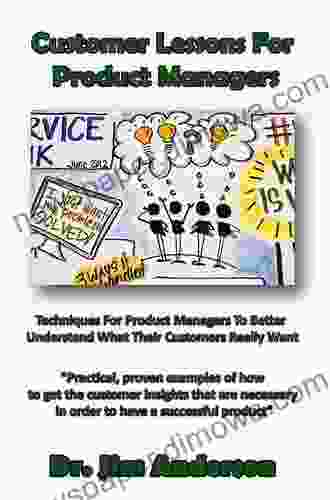Water Privatization in Southern Africa: Unlocking Equitable Access and Economic Prosperity


Water is the lifeblood of human civilization. Access to clean, safe water is not only a fundamental human right, but it is also essential for economic development. However, in many parts of the world, water resources are scarce and unevenly distributed. This is particularly true in Southern Africa, where water shortages and pollution are major challenges.
Water privatization has been proposed as a solution to the water crisis in Southern Africa. However, the privatization of water has been a controversial issue, with both proponents and opponents arguing its merits and drawbacks.
4 out of 5
| Language | : | English |
| File size | : | 1987 KB |
| Text-to-Speech | : | Enabled |
| Screen Reader | : | Supported |
| Enhanced typesetting | : | Enabled |
| Word Wise | : | Enabled |
| Print length | : | 322 pages |
In this article, we will explore the issue of water privatization in Southern Africa. We will examine the arguments for and against privatization, and we will provide an in-depth analysis of the potential impacts of privatization on access to water, water quality, and economic development.
Arguments for Water Privatization
Proponents of water privatization argue that it can lead to several benefits, including:
* Increased investment in water infrastructure: Private companies are often more willing to invest in water infrastructure than public utilities. This can lead to increased access to water, improved water quality, and reduced water shortages. * Improved efficiency: Private companies are typically more efficient than public utilities. This can lead to lower water costs for consumers and businesses. * Increased innovation: Private companies are more likely to invest in research and development, which can lead to new water technologies and solutions. * Improved customer service: Private companies are more responsive to customer needs than public utilities. This can lead to improved customer satisfaction and increased public confidence in the water system.
Arguments Against Water Privatization
Opponents of water privatization argue that it can lead to several negative consequences, including:
* Increased water costs: Water privatization can lead to higher water costs for consumers and businesses. This can be a particular burden on low-income households and communities. * Reduced access to water: Water privatization can lead to reduced access to water for poor and marginalized communities. This can have a devastating impact on their health, well-being, and economic opportunities. * Environmental degradation: Water privatization can lead to environmental degradation, as private companies may be more likely to prioritize profits over environmental protection. * Loss of local control: Water privatization can lead to a loss of local control over water resources. This can make it more difficult for communities to hold private companies accountable for their actions.
The Impacts of Water Privatization on Access to Water, Water Quality, and Economic Development
The impacts of water privatization on access to water, water quality, and economic development are complex and varied. There is no one-size-fits-all answer to the question of whether or not water privatization is a good idea.
However, there is some evidence to suggest that water privatization can lead to both positive and negative outcomes. For example, a study by the World Bank found that water privatization in Argentina led to increased investment in water infrastructure and improved water quality. However, the study also found that water privatization led to increased water costs for consumers.
Another study, by the International Water Association, found that water privatization in the United Kingdom led to improved efficiency and customer service. However, the study also found that water privatization led to a loss of local control over water resources.
Ultimately, the decision of whether or not to privatize water is a complex one that must be made on a case-by-case basis. There is no easy answer, and there are both potential benefits and risks to consider.
Water privatization is a complex issue with no easy answers. There are both potential benefits and risks to consider, and the decision of whether or not to privatize water is one that must be made on a case-by-case basis.
However, it is clear that water is a precious resource that must be managed sustainably. We must find ways to ensure that everyone has access to clean, safe water, without compromising our environment or our economic development.
4 out of 5
| Language | : | English |
| File size | : | 1987 KB |
| Text-to-Speech | : | Enabled |
| Screen Reader | : | Supported |
| Enhanced typesetting | : | Enabled |
| Word Wise | : | Enabled |
| Print length | : | 322 pages |
Do you want to contribute by writing guest posts on this blog?
Please contact us and send us a resume of previous articles that you have written.
 Book
Book Novel
Novel Page
Page Chapter
Chapter Text
Text Story
Story Genre
Genre Reader
Reader Library
Library Paperback
Paperback E-book
E-book Magazine
Magazine Newspaper
Newspaper Paragraph
Paragraph Sentence
Sentence Bookmark
Bookmark Shelf
Shelf Glossary
Glossary Bibliography
Bibliography Foreword
Foreword Preface
Preface Synopsis
Synopsis Annotation
Annotation Footnote
Footnote Manuscript
Manuscript Scroll
Scroll Codex
Codex Tome
Tome Bestseller
Bestseller Classics
Classics Library card
Library card Narrative
Narrative Biography
Biography Autobiography
Autobiography Memoir
Memoir Reference
Reference Encyclopedia
Encyclopedia Moritz Demmer
Moritz Demmer Monica Mckayhan
Monica Mckayhan Jay Jennings
Jay Jennings R Shaw
R Shaw Jean Pierre Le Pan
Jean Pierre Le Pan Richard Russo
Richard Russo Marie
Marie Vevna Forrow
Vevna Forrow Supersummary
Supersummary Robert Morrow
Robert Morrow Jennifer Flanders
Jennifer Flanders Steve Eddy
Steve Eddy Janette Yoke
Janette Yoke Silvano Donati
Silvano Donati Jessica Freeburg
Jessica Freeburg Janya Bhaskar
Janya Bhaskar Jennifer Mcclearen
Jennifer Mcclearen Nalynn Dolan Caine
Nalynn Dolan Caine Jared St Jean
Jared St Jean Jeremy Benson
Jeremy Benson
Light bulbAdvertise smarter! Our strategic ad space ensures maximum exposure. Reserve your spot today!

 Salman RushdieIshant Sharma: The Indian Cricketer Who Captured Hearts on and Off the Field
Salman RushdieIshant Sharma: The Indian Cricketer Who Captured Hearts on and Off the Field Albert CamusFollow ·2.4k
Albert CamusFollow ·2.4k Salman RushdieFollow ·10.1k
Salman RushdieFollow ·10.1k Virginia WoolfFollow ·17.8k
Virginia WoolfFollow ·17.8k Joseph FosterFollow ·2.3k
Joseph FosterFollow ·2.3k Edward BellFollow ·11.6k
Edward BellFollow ·11.6k Martin CoxFollow ·14.7k
Martin CoxFollow ·14.7k Marc FosterFollow ·5.1k
Marc FosterFollow ·5.1k Jeffrey HayesFollow ·16.8k
Jeffrey HayesFollow ·16.8k

 Terry Bell
Terry BellHow Product Managers Can Sell More of Their Product
Product managers are responsible for the...

 Jeffery Bell
Jeffery BellUnveiling the Secrets to Food Truck Success: Tips for...
: Embarking on Your Culinary Adventure ...

 Craig Carter
Craig CarterHow To Create Successful Products That Customers Will...
In today's...

 W. Somerset Maugham
W. Somerset MaughamGetting the World to Tour Again After the Pandemic: How...
The global pandemic has brought the...

 John Steinbeck
John SteinbeckManaging Your Product Manager Career: The Ultimate Guide
Product management...

 Edmund Hayes
Edmund HayesUnveiling the Secrets: Techniques for Product Managers to...
In the competitive...
4 out of 5
| Language | : | English |
| File size | : | 1987 KB |
| Text-to-Speech | : | Enabled |
| Screen Reader | : | Supported |
| Enhanced typesetting | : | Enabled |
| Word Wise | : | Enabled |
| Print length | : | 322 pages |









